Today’s readings
Traditionally, today is Laetare Sunday – laetare being Latin for “rejoice.” Sometimes this Sunday is celebrated by the wearing of rose-colored vestments, rather than the Lenten violet. Laetare Sunday reminds us that even in the “heaviness” of Lent, there is reason for rejoicing. And today’s readings do deal with some heavy topics, but clearly and always through the lens of rejoicing in God’s mercy. So that’s how I would like to look at today’s Liturgy: what in the world gives us cause to rejoice today, here and now, in our own lives?
In a few weeks, the Mass of the Easter Vigil will begin by telling us all the reasons we should rejoice. That Mass begins with the sung Easter Proclamation called the Exsultet, which tells the whole story of God’s mercy and sings God’s praises. It is sung in the darkened church, proclaiming that, even in the darkness of our world, the light of God’s mercy still reigns and has power to overcome everything that keeps us from the true Light of the world. It begins: Exult, let them exult, the hosts of heaven, exult, let Angel ministers of God exult, let the trumpet of salvation sound aloud our mighty King’s triumph!
That proclamation of the Exsultet almost seems out of place in our world today. All we have to do is pick up a newspaper to be convinced of the darkness that pervades our lives. Wars and terrorism claim the lives of innocent people and young soldiers alike. Crime in its many forms takes its toll on our society. Injustice and oppression still exist in our own nation and abroad. The poor still hunger and thirst for the basic necessities of life. And then we could look at the darkness that seems to reign in our own lives. Sin that has not been confessed. Bad habits that have not been broken. Love and mercy that have been withheld. All of these darken our own lives in ways that we don’t fully appreciate at the time, but later see with sad clarity. Our world and our lives can be such dark places in these days. But to that darkness, the Exsultet sings: Be glad, let earth be glad, as glory floods her, ablaze with light from her eternal King, let all corners of the earth be glad, knowing an end to gloom and darkness.
You see, this darkness is exactly the darkness in which the people of Israel found themselves in today’s first reading. Notice what that reading says about the people – it’s not flattering at all! It says “in those days, all the princes of Judah, the priests, and the people added infidelity to infidelity, practicing all the abominations of the nations and polluting the LORD’s temple which he had consecrated in Jerusalem.” Note particularly the use of the word “all” in that first sentence: had just some of the people been unfaithful? No: all of them had. Did they practice just some of the abominations of the other nations? No: they practiced all of them. But God in his mercy sent them messengers and prophets to warn them away from their sinfulness. Did they listen to them? No – and not only did they just not listen to them, but they ridiculed and derided those messengers of God, “despised his warnings and scoffed at his prophets.” Certainly God would have been justified in letting his chosen people go to hell in a hand basket. But he didn’t. Though he punished them with exile for a time, he brought them back to their own land to worship their God once again. When darkness seems to affect even the Church, the Exsultet calls out: Rejoice, let Mother Church also rejoice, arrayed with the lightning of his glory, let this holy building shake with joy, filled with the mighty voices of the peoples.
Back at Christmas time, we heard the beginning of the Gospel of John giving us reason for our exultation: even in the darkness of our world, the Light shines through. John proclaims: “the light shines in the darkness, and the darkness has not overcome it.” Today’s Gospel reading is from John also, and shows us the source of that light: Jesus Christ who is lifted up just as Moses lifted up the serpent in the desert. This line refers to a passage from the book of Numbers [Num. 21:8-9] in which the people were complaining about the way God was feeding them in the desert. So he sent seraph serpents among them, and people were being bitten and falling ill and dying from their venom. As a remedy, God told Moses to mount one of the serpents on a pole, and anyone who had been bitten would get better if they looked at the serpent lifted up on the pole. John compares this to the remedy that we receive for our many sins when we look upon our Savior, lifted up on the pole of the Cross. But even better, the lifting up of the Son of Man is the Resurrection: God the Father raising Jesus up from the dead, to destroy the power of sin and death in our world. Either way you look at it, the joy is irresistible: the darkness of our sin and the finality of our death are destroyed when we look upon Jesus our Savior lifted up for us. Of this, the Exsultet sings: This is the night, when Christ broke the prison-bars of death and rose victorious from the underworld.
Which brings us to the heart of today’s Gospel reading, maybe even to the heart of the whole Gospel. That would be the line: “for God so loved the world, that he gave his only Son, so that everyone who believes in him might not perish but might have eternal life.” If you have seen any sporting event, in person or on television, you have seen the reference to that line: posters that read “John 3:16.” And clearly, that is the heart of the Gospel for all of us: that God
so loved the world – not just the good part of the world, the pristine part, the beautiful part – but every part of the world. He loves the parts of the world that are polluted, or embattled by crime, or rife with injustice and oppression, or debilitated by sickness and disease, or destroyed by war, or mourning death, or lamenting sin. That is not to say that he loves the pollution, crime, injustice, or any of that. But he loves the world – the whole world – despite all that darkness. He loves the world for what he created it to be, he loves us as the people he made his own. And to that world, that people he loves, he sends his only Son, his beloved, so that we might not perish in our darkness or disease or injustice or sin and death, but might have eternal life – the life he longs for each of us to share with him. Any other message would be completely disappointing, and our God does not disappoint! Our birth would have been no gain, had we not been redeemed. O wonder of your humble care for us! O love, O charity beyond all telling, to ransom a slave you gave away your Son!
Lent is certainly a time for us to be mindful of the ways in which we have fallen short of God’s call. Last week’s look at the ten commandments provided each of us, I think, with plenty of reflection on how we can better live God’s call. But this week’s Gospel puts all of that in perspective for us: we don’t dwell on our sins and shortcomings just to remind ourselves how miserable we are; we reflect on our sins and shortcomings because we know that God can transform them. We don’t strive to become better people in order to be worthy of God’s love for us; we strive to become better people because God loves us and that love calls us to a much better way of living. Today’s Liturgy says to us that yes, we have sinned; yes, we have fallen short; yes, we have been hard-hearted; yes, we have failed to respond to God’s love; yes, in particular we have failed to show that love to others. And yes, we are deserving of punishment for our sins. But, our God, who is rich in mercy, forgets the punishment and remembers compassion for the people he created. He sent his only Son to redeem us and bring us back from our darkness into everlasting light. Our God even uses the darkness and transforms it to be a source of Resurrection for his people. At that Easter Vigil a few short weeks from now, we will remember that The sanctifying power of this night dispels wickedness, washes faults away, restores innocence to the fallen, and joy to mourners, drives out hatred, fosters concord, and brings down the mighty.
On this Laetare Sunday, we remember that even in the darkness of our world as it is, we can remember the joy of the Light that is to come. We reflect on God’s everlasting mercy, which is stronger than sin and death. We respond to the compassion that God has shown for us, his chosen people. We live that mercy and love in our own lives, sharing it with others. Then as our own darkness is transformed to light, maybe our little corner of the world can know compassion amidst sorrow, comfort amidst mourning, mercy against intolerance, love against hatred, and the peace that passes all of our understanding in every place we walk. May we carry the flame of God’s love into our world to brighten every darkness and bring joy to every sorrow. May this flame be found still burning by the Morning Star: the one Morning Star who never sets, Christ your Son, who, coming back from death’s domain, has shed his peaceful light on humanity, and lives and reigns for ever and ever. Amen.


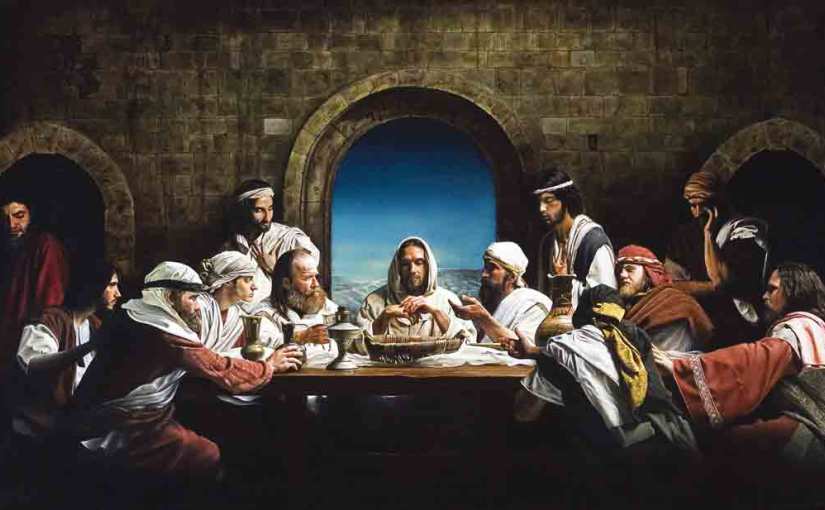
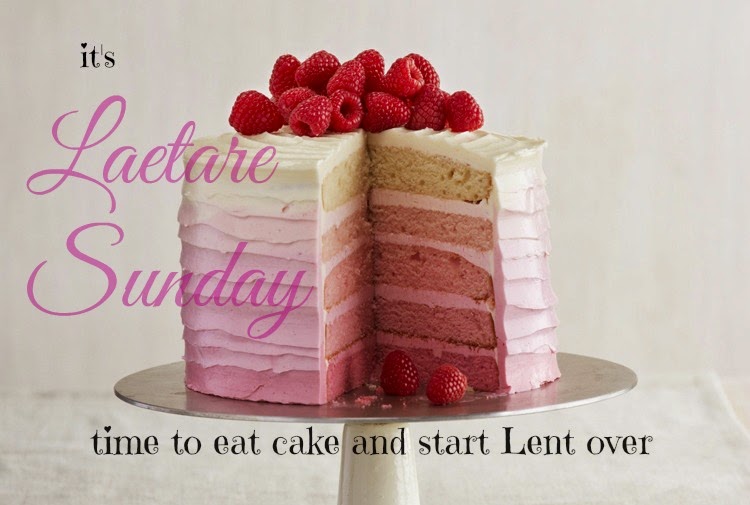
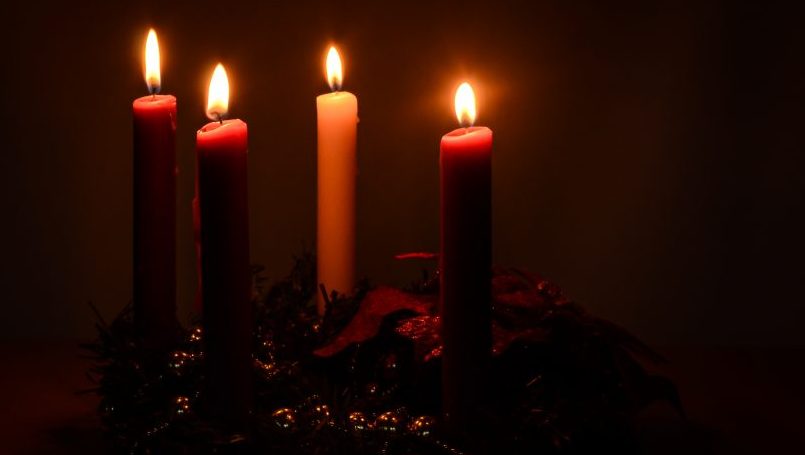
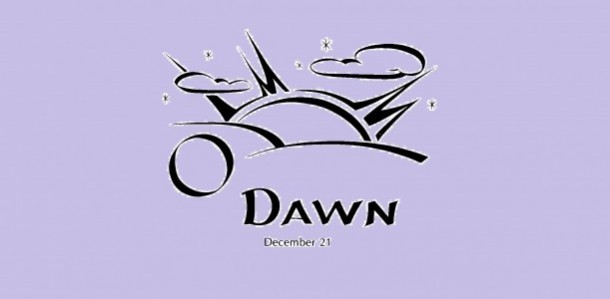
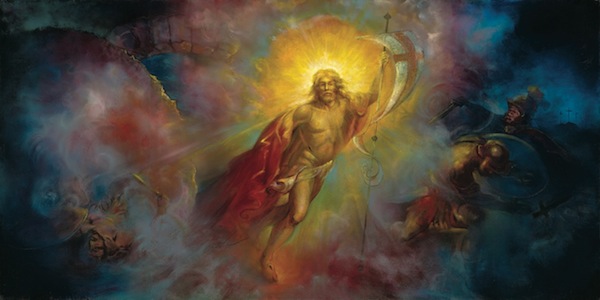

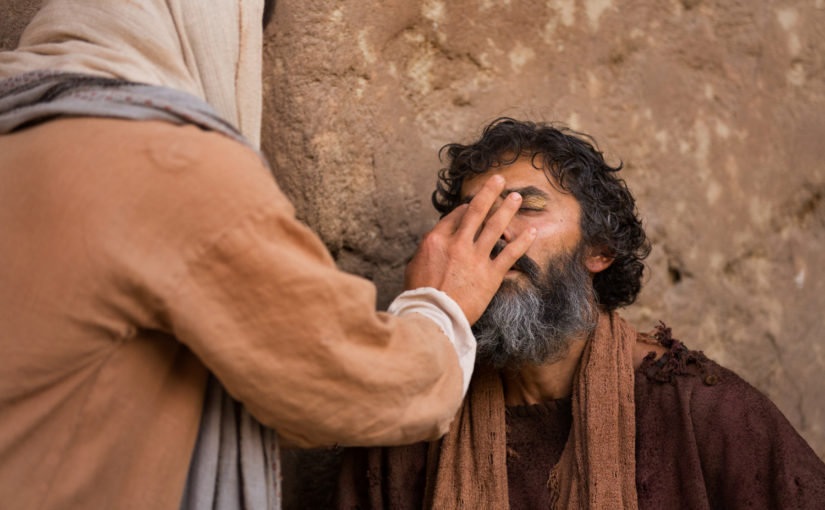
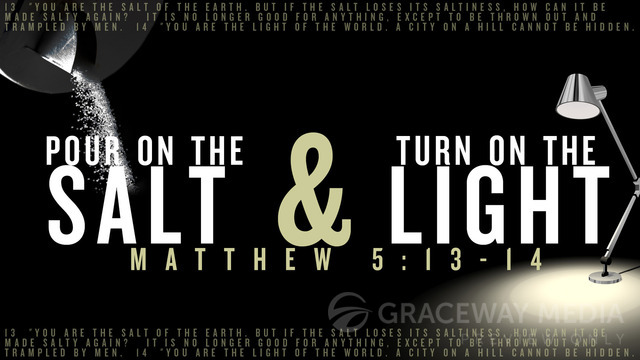
You must be logged in to post a comment.